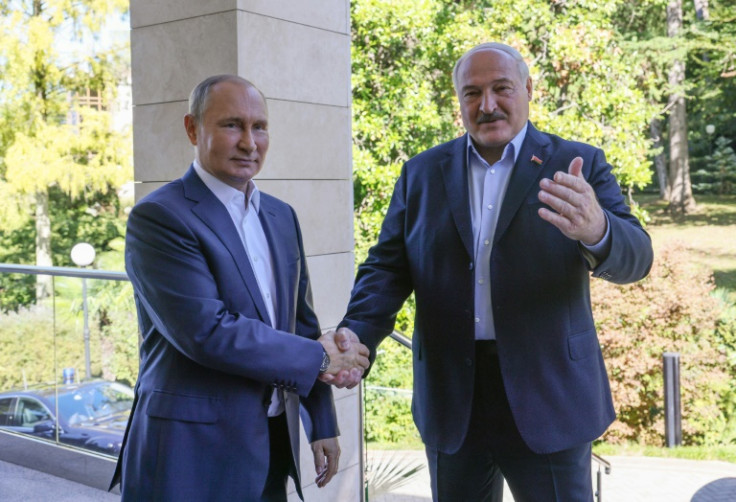Belarusian president Lukashenko hospitalised after meeting Putin
It is the first time since the end of the Cold War that Belarus has allowed the staging of nuclear weapons on its soil.

Days after claiming that anyone who is willing "to join the Union State of Russia and Belarus" will be given nuclear weapons, Belarus President Alexander Lukashenko was hospitalised in Moscow last week.
It is being reported that he was hospitalised after a meeting with Russian President Vladimir Putin.
The development came to light after Belarus 2020 presidential candidate Valery Tsepkalo put out a message on Telegram on Saturday. He claimed that Lukashenko was in critical condition at the Central Clinical Hospital of Moscow.
"According to the information we have, which requires additional confirmation, Lukashenko after a meeting with Putin behind closed doors, was urgently taken to the Central Clinical Hospital of Moscow, where he is currently staying," Newsweek cited Tsepkalo as saying.
"The best specialists were sent to return him (Lukashenko) from a condition assessed by doctors as critical," the Telegram message further added.
It continued: "The organized measures to rescue the Belarusian dictator were aimed at averting speculation about the possible involvement of the Kremlin in his poisoning.
"It doesn't matter if he returns to working order or not, doctors warn of a possible recurrence of relapses." It also needs to be noted that rumours about Lukashenko's ill health have been doing the rounds for weeks. However, he had dismissed all the reports concerning his health.
Lukashenko has been a staunch supporter of Putin and his war in Ukraine. Last week, he also approved the transfer of some tactical nuclear weapons from Moscow to Minsk.
Belarus had transferred all its nuclear weapons to Russia after the collapse of the Soviet Union in the 1990s. It is the first time since the end of the Cold War that the state has allowed the staging of nuclear weapons on its soil.
"It was necessary to prepare storage sites, and so on. We did all this. Therefore, the movement of nuclear weapons began," Lukashenko said while confirming the development.
He even offered to provide nuclear weapons to the states willing to join the Union of Russia and Belarus. "It's very simple. [Countries] should join the union of Belarus with Russia, and that's it: there will be nuclear weapons for everyone," he said during an interview with Russia's Pavel Zarubin.
Russia and Belarus are formally part of a Union State, an alliance between the two former Soviet republics. Minsk had also allowed the use of its territory to send troops into Ukraine last year.
The move has been condemned by Western nations as well as the European Union. It is being seen as a step towards escalation as the war between Russia and Ukraine rages on.
"It's the latest example of irresponsible behavior that we have seen from Russia since its full-scale invasion of Ukraine over a year ago," said US State Department spokesperson Matthew Miller while condemning the development.
Miller, however, clarified that Russia is not actually planning to use nuclear weapons in the war against Ukraine. He said that there are no "indications that Russia is preparing to use a nuclear weapon."
Belarusian opposition party members have also slammed the president for his decision to support Russia and permit the re-stationing of weapons on Belarusian soil.
"It directly violates our constitutional non-nuclear status and would secure Russia's control over Belarus for years ahead. And it would further threaten the security of Ukraine and all of Europe," opposition leader Sviatlana Tsikhanouskaya wrote in a Twitter post.
The world had narrowly escaped a nuclear war at the brink of the Cuban Missile Crisis of 1962. The war seemed inevitable between the US and the USSR. The fact that both were nuclear powers forced their leaders to act in a cautious manner; otherwise, we would have been living in a different world today.
© Copyright IBTimes 2024. All rights reserved.






